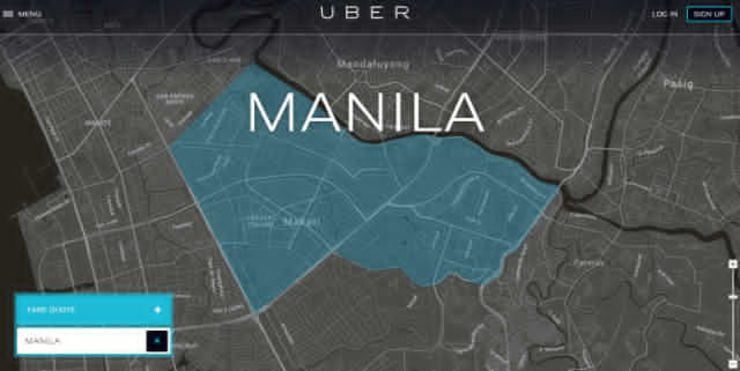SUMMARY
This is AI generated summarization, which may have errors. For context, always refer to the full article.

MANILA, Philippines (UPDATED) – Lawmakers on Wednesday, November 19, raised a red flag on taxi service Uber Technologies Inc. for operating in the Philippines without a corporate license.
For this, Surigao Del Sur First District Representative Philip Pichay said Uber might be charged with tax evasion charges.
Uber was launched in the Philippines in February, and for two quarters, Pichay said “it should have started filing income taxes on a quarterly basis.”
Asked about this, Uber public policy associate Vickie Cheng, said “we are working with counsels to comply with the relevant laws.”
During the hearing, it was noted that Uber is still in the process of filing their license with the Securities and Exchange Commission (SEC) despite already operating in the country for 9 months now.
Companies registered with the SEC are mandated to detail their balance of income and expenditure over the preceeding period, thus opening their books to the public.
A SEC registration is needed before companies proceed registering with the Bureau of Internal Revenue (BIR), where they are profiled for applicable tax obligations.
Uber’s lack of government permits to transact business in the country also bars it from taking anyone into Philippine courts.
But the US-based ridesharing service can still be sued here for “any kind of cases,” said Cyrus Richard Montesa, SEC’s securities review counsel.
“Even if you’re not licensed to do business in the Philippines, a suit may be instituted against you before the Regional Trial Court,” he added, citing Section 133 of the Corporation Code of the Philippines.
The particular section of the Code reads as follows:
Section 133. Doing business without a license. – No foreign corporation transacting business in the Philippines without a license, or its successors or assigns, shall be permitted to maintain or intervene in any action, suit or proceeding in any court or administrative agency of the Philippines; BUT such corporation may be sued or proceeded against before Philippine courts or administrative tribunals on any valid cause of action recognized under Philippine laws.
Members of the House transportation committee have been critical of Uber. Two days ago, they insisted that it cease its operations while government tries to figure out whether to regulate the car-sharing taxi service.
The series of House inquiries were launched after the Department of Transportation and Communications (DOTC) met with Uber to find ways on how the government could integrate the service as a transportation franchise unit.
Government was compelled to do this after the Land Transportation Franchising and Regulatory Board (LFTRB) fined one of Uber’s partner vehicles in October, causing negative reactions from many commuters who think the agency should run after abusive taxi drivers instead.
But at Wednesday’s hearing, LTFRB chairman Winston Ginez asserted: “We can’t just let them perform their service beyond the jurisdiction of our government agency.” (READ: Is the LTFRB Uber-reacting?)
Ginez insisted that for Uber to meet regulatory standards, it must only partner with vehicles that are licensed to operate for public transportation.
In a statement on Wednesday, DOTC Secretary Joseph Emilio Abaya said that Uber should serve as a wake-up call to taxi companies.
“Commuters say they feel safer taking these private vehicles-for-hire, that the fleet are newer, that app services are faster and more efficient,” Abaya said. – Rappler.com
Add a comment
How does this make you feel?
There are no comments yet. Add your comment to start the conversation.